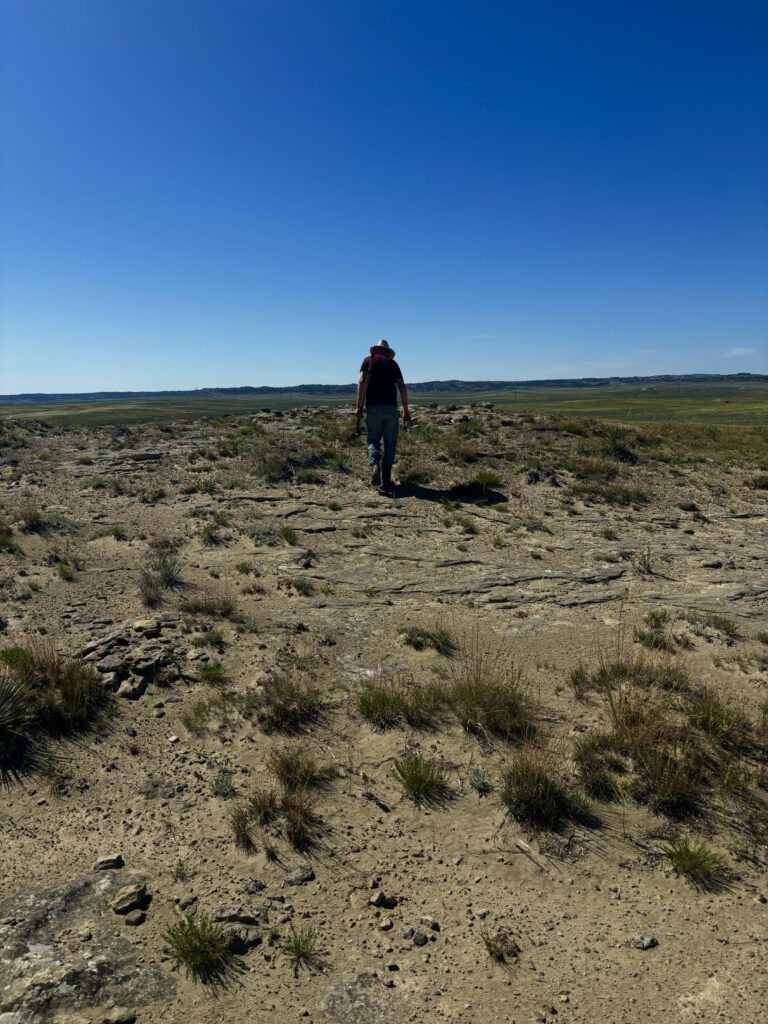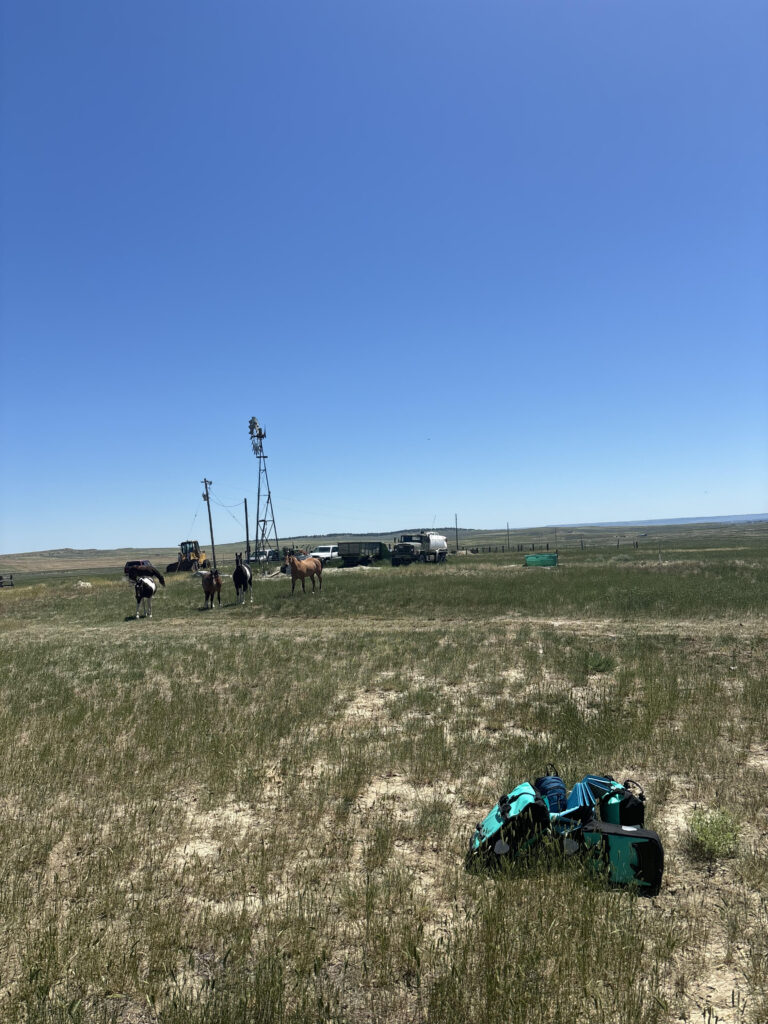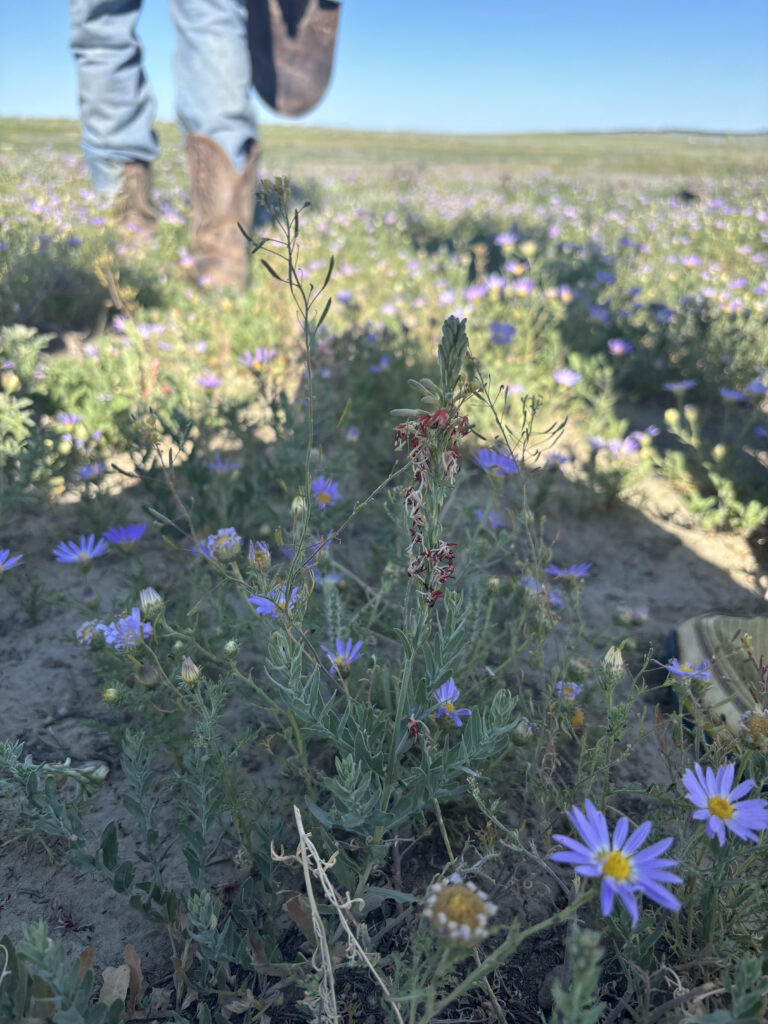The sun beat down on us on our first twenty six miles from Billings. We got off to an easy start after our lengthy car ride from Missoula, staying on Alexis Bonogofsky’s ranch, but now we were in the thick of it. At only our first day this was already my longest bike ride, having only trained up to twenty miles before coming on Cycle the Rockies. While our first ride may not have been our most difficult, it was easily our hottest, and I had a lot on my mind as I could feel the back of my neck baking under the Montana sun. As I took in the new environment I would call home for the following weeks, I wondered about the person we were about to meet: Steve Charter, who I only knew for his battle with the nearby coal company who wants his land, and for the various preconceptions of ranchers I had up until that point.
Steve greeted us with a smile and an invitation to his living room when we arrived. He had to take a call and stepped away while we settled in. A few minutes later, he returned and we all introduced ourselves. My only knowledge of ranchers at this time was that people like Alexis wanted to transform their practice to be regenerative and less exploitative of the land. Steve had been ranching for decades so I assumed he must be part of the problem, though I knew at least he wanted to protect his land from coal mining. I could not have been more wrong.
As our group sat in Steve’s living room and listened to his story pour out of him, it became clear that his struggle to protect his land was far deeper than ranching and far deeper than himself. He revealed to us with shaky breath that the land to him was sacred, older than him and the generations before him. The land was older than the Indigenous Americans who had been forced off it, and it had survived everything it has been put through so far, even as its natural balance had been changed so much by settler colonialism. For Steve, he is not the land’s owner or steward, but a student of it. He learned from it and paid attention to what it needs from him. He emphasized that we as humans are not smart enough to control the Earth, try as we may, and he learned this through his experiments in regenerative ranching that he hopes will soon become mainstream. He acknowledged emotionally that if he is forced to part ways with his ranch that he believes it is the land’s way of telling him that it doesn’t need him anymore. It will survive without him, just as it has survived all it has been through.
 His stories left our group speechless as he drove away to check on his cattle, and we set up our tents in near silence until the horses came over to see what the fuss was about. We had some time to reflect on what he said before he came back to give us the grand tour of the land. He explained his experiments and practices as we walked under the brutal sun. Though the natural diversity that had existed on this land before American settlers took it over was gone, Steve made it his goal to encourage soil health and vegetation diversity to maintain the health of the land. Although he made it clear his knowledge could never be enough for true understanding of the complex systems at play, his talk of microbiomes and soil nutrition made him seem like an expert. He went on enthusiastically for hours, showing us different grasses and shrubs and the way prairie dogs helped encourage some plants to grow without ever pausing to take a sip of water. By the time the sun had gotten much lower in the sky, it was us, the young people, who had to suggest we stop and eat dinner.
His stories left our group speechless as he drove away to check on his cattle, and we set up our tents in near silence until the horses came over to see what the fuss was about. We had some time to reflect on what he said before he came back to give us the grand tour of the land. He explained his experiments and practices as we walked under the brutal sun. Though the natural diversity that had existed on this land before American settlers took it over was gone, Steve made it his goal to encourage soil health and vegetation diversity to maintain the health of the land. Although he made it clear his knowledge could never be enough for true understanding of the complex systems at play, his talk of microbiomes and soil nutrition made him seem like an expert. He went on enthusiastically for hours, showing us different grasses and shrubs and the way prairie dogs helped encourage some plants to grow without ever pausing to take a sip of water. By the time the sun had gotten much lower in the sky, it was us, the young people, who had to suggest we stop and eat dinner.
Leaving his ranch to head to Signal Peak and Roundup, MT, I felt like my whole way of thinking about the Earth had been fundamentally changed. I could no longer see a blade of grass without thinking of its history in the area and the microbiome beneath it that allowed it to grow. I certainly could never think of ranching in the same way, having been shown Steve’s symbiosis with the land first hand. The steps he had taken to live with the land and not simply exploit it showed a potential future where we can live with the land and for the land rather than the other way around. With the climate crisis in full effect, it will be people like Steve and his ideas that lead us into an ecological future as the destructive ideas of the past get left behind.
